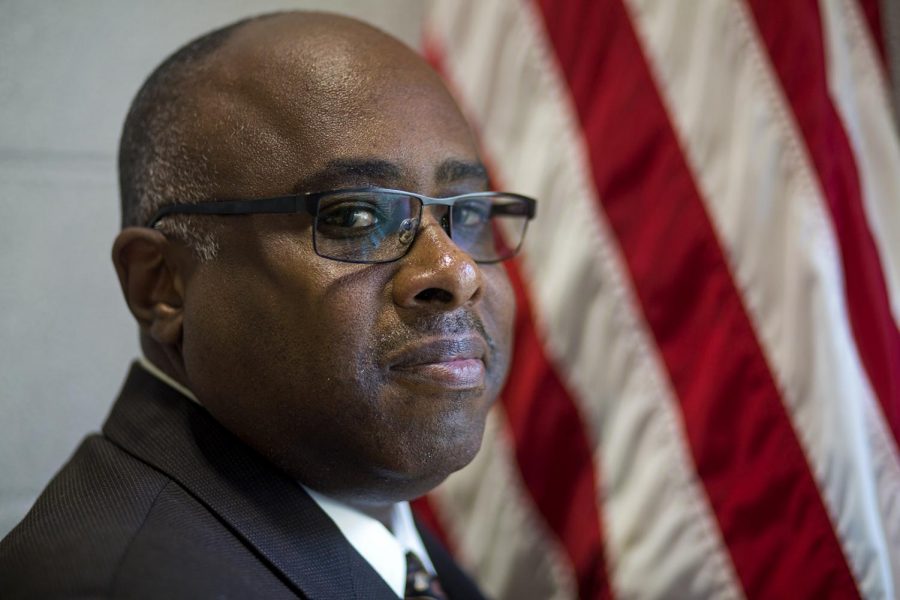WKUPD names new chief of police
September 20, 2017
The WKU Police Department has named their new chief of police as Mitchell Walker, who has served as interim chief since last August, according to WKU administrators.
Walker has served as the interim chief of police since August of 2016, following the resignation of Chief Robert Deane. Walker said being interim chief for a year was very important for his preparation for becoming chief of police.
“I took it very seriously,” Walker said. “I’ve enjoyed every minute of it.”
Walker has already begun to present new ideas for WKU’s campus police, including a university-wide chief advisory team.
“This is going to consist of about sixteen to eighteen people across campus, that’d be freshmen, sophomores, juniors, seniors, faculty and staff,” Walker said. “We’re going to meet probably a couple times a semester and discuss campus safety issues and how we can do a better job at doing that.”
The advisory team has not been chosen yet, although Walker said he has already had multiple volunteers to join the team.
Walker also said he wants WKU police to improve on their efficiency, whether it be training, customer service, or diversity, saying that understanding those would help the police department “to build relationships within the community we serve.”
“I think [diversity] is very important,” Walker said. “Again, police officers, we have to communicate and relate to the people we serve and so being aware of social justice issues and being diverse and being trained in diversity is very important. It helps us to do our job and to be more efficient at our job.”
Walker has previously served as a patrol officer for WKU and the Bowling Green Police Department. Walker also has experience as a criminal investigation division-detective, crisis negotiator, police training officer and firearms instructor.
Brian Kuster, vice president for student affairs, was on the chief of police selection committee and said there were two main things that made Walker stand out during interviews. The first was Walker’s leadership style, Kuster said.
“What I have witnessed with Mitch is he knows he doesn’t have all the answers and he’s willing to talk to other people, gain knowledge, and take advice and then make a decision,” Kuster said.
The second thing that made Walker a frontrunner was Walker’s understanding of the community oriented policing philosophy, Kuster said.
“It’s getting out of your car, it’s interacting with the community … that’s so important that the students see the police not as an authoritarian group, but they’re here to assist and help both students and faculty and staff,” Kuster said. “Mitch clearly in his interviews demonstrated his understanding and knowledge of that in his willingness to make changes and to work with our officers to get them to interact with the community on a positive basis.”
Kuster said WKU has used this community oriented policing philosophy in the past, and he thought it was successful. In the past, through a grant from the justice department, WKU was able to “pay overtime to officers” to do things like coach flag football or do programs on campus, Kuster said.
“We may not be able to pay overtime as much for this, but we can get the officers out of their cars, on foot patrols or bike patrols,” Kuster said, later adding, “They are here to enforce the law, but they’re also a huge resource for our community.”
Reporter Cameron Coyle can be reached at 270-745-6011 and [email protected].













